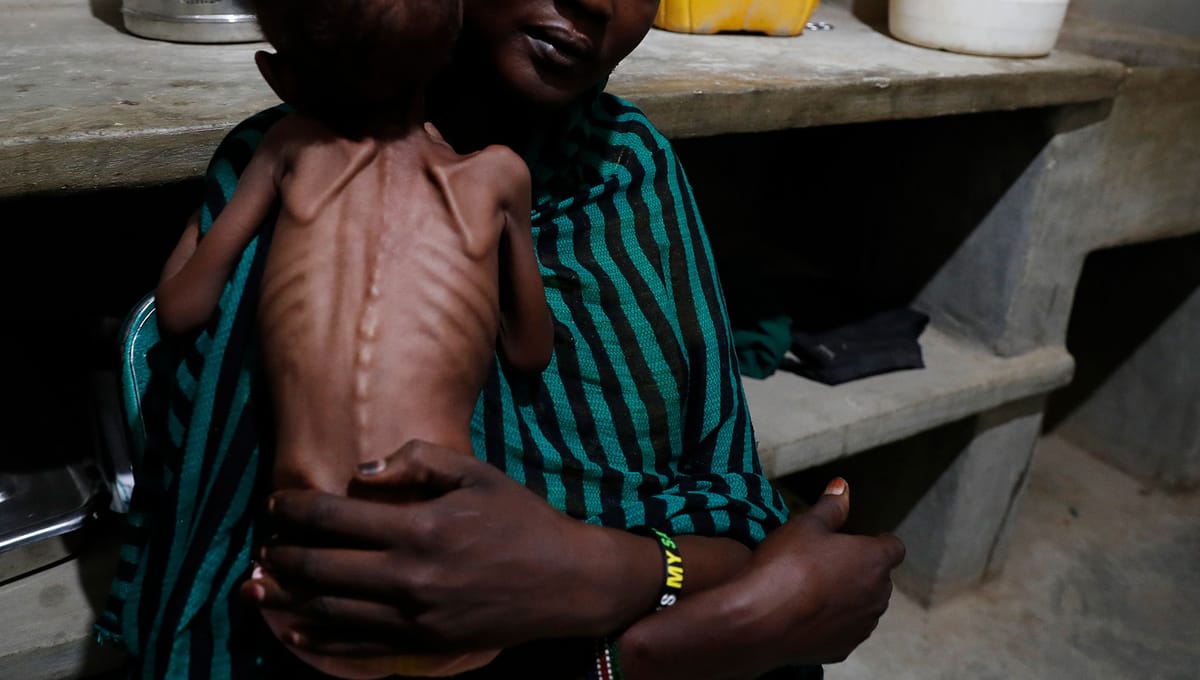The Sudan Crisis is a Slow-Motion, Man-Made Catastrophe
Sudan’s civil war represents the deliberate destruction of a society, sustained by weapons, starvation, and international indifference

The Sudanese army is winning battles for empty streets. Its recent capture of key bridges in Khartoum is another strategic victory in its campaign against the Rapid Support Forces (RSF). But these military gains are a fragment of a darker truth: there's little left worth fighting for in Sudan's capital. The bustling metropolis of six million has been hollowed out by war, its residents scattered across the country and beyond.
This is the bitter reality of Sudan's civil war. Generals battle over neighborhoods that eleven million civilians have already evacuated. They've fled wherever they can find safety - refugee camps in Chad, relatives' homes in Egypt, makeshift shelters in the countryside. Three million have crossed borders. Eight million remain internally displaced. The numbers are so large they become almost meaningless until you consider what they represent: nearly one in four Sudanese has been forced from their home.
The international community's response has been an exercise in diplomatic futility, with peace talks shuttling between capitals like a traveling circus, promising breakthrough moments that never amount to anything tangible. The RSF and army leaders make appearances, issue statements, and return to fighting, while their forces attack displacement camps and block aid convoys.
In Darfur, the situation edges toward apocalyptic. The RSF's recent attack on the Zamzam camp - a settlement of people who had already fled violence - shows how far the situation has deteriorated. These aren't military targets. They're concentrations of civilians surviving on food aid in a region where hunger has become a weapon of war.
The UN Secretary-General calls it a catastrophe of "staggering scale and brutality." But the diplomatic language fails to capture the deliberate nature of this crisis. This isn't a natural disaster. It's man-made annihilation, sustained by a steady flow of weapons and ammunition. And every party involved knows exactly what they're doing.
Russia's deal to establish a naval base on Sudan's Red Sea coast exposes the cynical geopolitics at play. While millions of Sudanese starve, foreign powers jockey for strategic advantage. The agreement allows Russia to station warships in Sudanese waters - a prize worth far more than the humanitarian aid they might send.
Twenty-five million people now face acute hunger. More than half of Sudan's population is wondering where their next meal will come from. In an area that once aimed to become Africa's breadbasket, famine stalks the countryside. Fields lie fallow. Markets stand empty. Supply chains have collapsed.
The world's attention has moved on, but Sudan's crisis only deepens. Each day brings new displacement, new hunger, and new civilian casualties. The military might reclaim every street in Khartoum, but they'll rule over ruins. The RSF might hold every town in Darfur, but they'll be controlling a graveyard.
This war has already lasted longer than World War II in Europe. It has displaced more people than the Syrian civil war did in its first two years. But it receives a fraction of the international attention and resources. The mandatory diplomatic statements come and go. The UN issues increasingly desperate appeals. Nothing changes.
Local Sudanese have stepped into the void. Community kitchens feed neighborhoods. Volunteer doctors run makeshift clinics. But their efforts can't match the scale of need. You can't feed twenty-five million people with community initiatives. You can't rebuild a country while its leaders fight over its corpse.
The solution isn't complicated: stop the flow of weapons, enforce real sanctions on leaders prolonging the fighting, and establish genuine humanitarian corridors. What's lacking isn't knowledge of what to do - it's the will to do it. Every day we wait, more Sudanese die. Every peace conference that fails makes the next one less likely to succeed.
The generals in Khartoum can fight over every bridge and building. But they're battling for control of a nation disappearing before their eyes. Sudan isn't just suffering a civil war - it's experiencing the wholesale destruction of a society. The world watches, issues statements, and does nothing. History will judge us all for this failure.